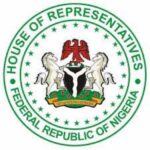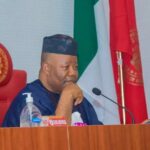Chuks Oyema-Aziken
Stakeholders have met to develop key policy priorities for locally-led adaptation in Nigeria as well as launching of the flagship report titled ‘Unlocking Adaptation Potential: Insights into Nigeria’s Climate Change Policies, Initiatives, and Local Actions’.
The workshop organized by Africa Policy Research Institute and the Centre for Climate Change & Development Alex Ekwueme Federal University Ndufu-Alike Nigeria (CCCD- AEFUNAI), in close collaboration with and support of the Department of Climate Change (DCC), Federal Ministry of Environment Nigeria discussed and shared knowledge about Climate Change Adaptation in Nigeria.
It also aimed at working closely with key policymakers, CSOs, NGOs and other relevant stakeholders’.
During the event, speakers emphasised the importance of collaboration in climate change adaptation and the role of locally-led initiatives.
Participants highlighted the importance of developing synergies between all key stakeholders in a way that would enhance the delivery and implementation of the climate adaptation plans of Nigeria in line with Nigeria’s Nationally Determined Contributions, National Adaptation Plan Framework, other national climate action policies and the Sustainable Development Goals (SDGs).
In his remarks, Dr Olumide Abimbola, Executive Director of APRI, noted that “APRI has a dedicated focus to providing policy options and alternatives to African policymakers and civil society actors. This report, which is one of three similar reports being released in three West African countries, (Nigeria, Senegal and Ghana) is a significant milestone in our collective efforts to address the urgent challenges of climate change.
“The report provides valuable insights into the power of locally-led adaptation and the transformative potential it holds for building climate resilience at the grassroots level, as well as underscore that those facing the harshest realities of climate change are not simply waiting for outsiders to come and fix their problems. They are trying their best to adapt to the effects of climate change”.
In her opening remarks, Dr. Mrs. Iniobong Abiola-Awe, the Director of the Department of Climate Change, noted that Nigeria has made stringent efforts toward enhancing its adaptation action plans by developing several national action plans and policy frameworks such as the National Adaptation Framework with the objectives: “to clarify the country’s approach to its national adaptation process and serve as a reference point for bringing together various adaptation planning efforts from different sectors and scales of decision making”.
“This report provides an overview of opportunities and entry points to improve climate governance at the local level in collaboration with the federal government.
She underscored the importance of collaborating with APRI and CCCD to develop relevant climate change adaptation knowledge, tools, and pathways to enhance Nigeria’s climate action with all relevant sectors at different levels.
In her remarks, Dr. Grace Mbungu, the Head of the Climate Change Program at APRI noted that the “release of this report comes at a critical juncture, as the world grapples with the impacts of climate change. It serves as a call to action for policymakers, practitioners, civil society, and the international community to enhance support for locally-led climate change adaptation strategies”.
She then commended the researchers, practitioners, and stakeholders who have dedicated their expertise and time to produce this comprehensive study.
Prof. Chukwumerije Okereke, a Senior non-resident Fellow at APRI and Director of CCCD- AEFUNAI stressed the the importance of locally-led adaptation actions by noting that numerous ethnic groups and indigenous peoples of Nigeria have been carrying out adaptation actions for centuries, but the scale, extent, and efficiency of their actions have not been fully evaluated.
“So, what we need to do is to make sure that we are really highlighting those local practices that can help and then attracting international funding to scale them up” Prof. Okereke added.
The event attracted a diverse audience, including representatives from government agencies and ministries, civil society organisations (CSOs), non-governmental organisations (NGOs), academia, youth, and private sector representatives.
This comprehensive report looks into the critical issue of climate change adaptation and explores locally-led strategies and initiatives to address the challenges posed by climate change in Nigeria, identifying barriers and enabling factors for adaptation to inform the country’s Nationally-Determined Contribution (NDC) implementation.
The report, which is based on rigorous research and case studies conducted across various ecological zones of Nigeria, highlights the growing impact of climate change on vulnerable communities and ecosystems. It sheds light on the importance of locally-led adaptation as a key approach to building resilience and safeguarding livelihoods in the face of climate-related risks. The report also underscores the significance of placing local communities at the heart of climate change adaptation efforts.



